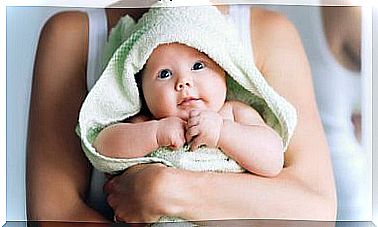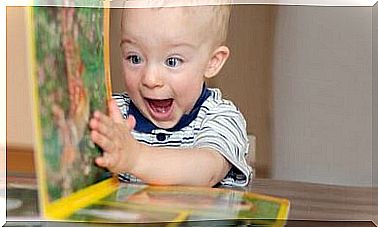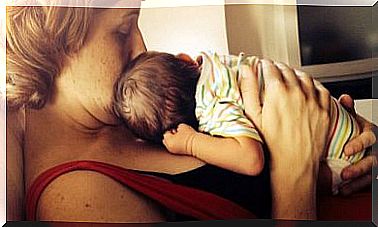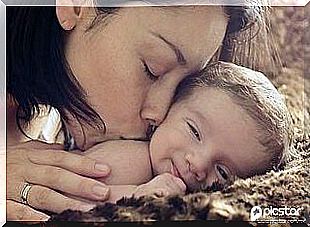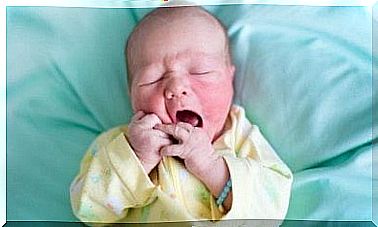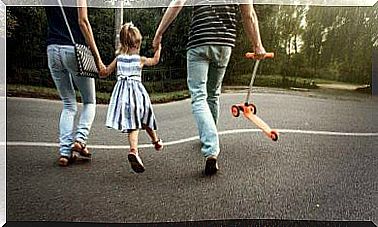Important Nasal Hygiene For Babies: 6 Key Factors
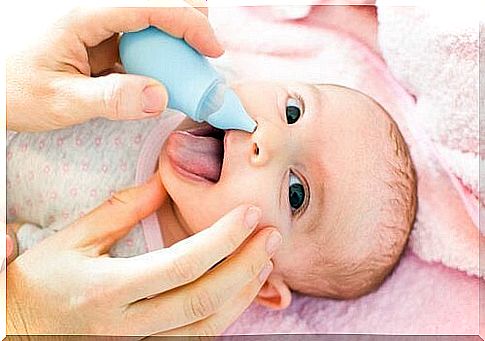
Because babies are delicate, it can be a problem to perform tasks as simple as nasal hygiene for babies if we do not know how to perform them properly. But it’s about being careful and trying not to use force.
Nasal congestion is annoying for everyone. Being able to not be able to breathe is frustrating and annoying, especially when it’s bedtime.
For infants, the issue becomes more complicated as they are not yet able to brush or rinse their nose themselves.
Therefore, it is important for parents to help them perform these tasks for them. In this way, their airways are cleared of mucus that is embedded and clumped there.
When to perform nasal hygiene for babies
Nasal hygiene for infants is recommended when they are unable to breathe due to mucus blocking the airways.
With nasal hygiene for infants, one tries not only to help breathe better, but also to avoid problems like or otitis media. which can develop when mucus accumulates.
These are quite common diseases in babies.
It is recommended to perform nasal hygiene in infants before eating and sleeping to let them eat and sleep without discomfort in their airways.
Methods to free the nasal passages
A recommended method of relieving babies is to use a humidifier or find a way to humidify the room where the baby will be for a while.
This method is ideal, especially in winter, as heating systems can make the airways dry and aggravate the problem.
You can get appliances that allow you to hang water on the radiator so that it evaporates. You can also moisten an area by boiling a large pot of water.
Additional recommendations
- Wash your hands thoroughly as this will.
- Make sure the baby is comfortable to avoid scaring the baby or making it cry.
- Have all the tools available to be able to perform the process quickly. The most common tools usually include: Salt water, a syringe and a.
- Have a handkerchief or disposable wipes on hand in case of need.
- Be sensitive when handling the baby’s nose.
- Do not force the baby if it resists.
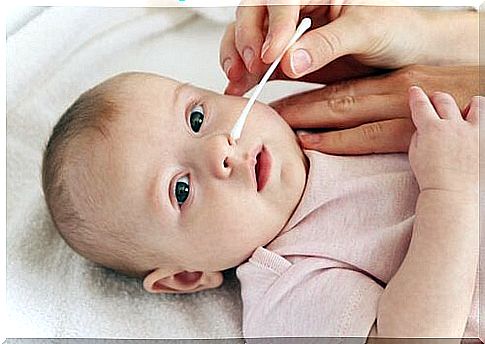
How to perform nasal hygiene for babies
We need to pay attention to getting good results so the baby behaves comfortably.
If your baby is old enough to follow instructions, instruct the baby to tilt his head forward over a sink.
On the other hand, if you are dealing with one, lay the baby on something soft, like a changing table or a bed.
Next, make sure the baby is calm, which is a little difficult. But you need to find a way to make the baby as calm as possible so that the baby avoids getting hurt and feeling uncomfortable.
To ensure that the baby does not move, it is best to have someone help you. But if you are alone, you can wrap the baby in a blanket to immobilize it.
How to use saline solution
When it comes to nasal hygiene for infants, it is best to apply a physiological serum depending on the intensity of the mucus.
When the baby has a lot of mucus or if the mucus is very thick, you should give the baby serum drops through the nostrils.
If the baby does not have much mucus or if the mucus is not very thick, just apply a few drops.
To ensure that nasal hygiene for babies is as effective as possible, the serum is warmed slightly before being applied to the baby’s nose.
This makes the fluid less bothersome for the baby, making the baby more comfortable.
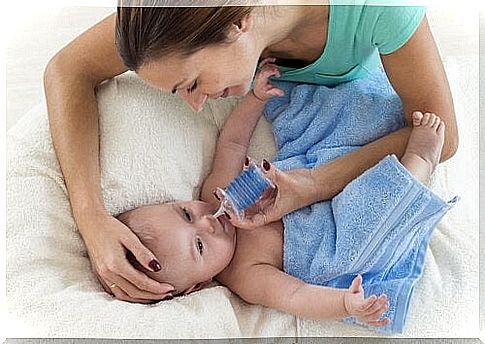
Steps to follow up on nasal hygiene for babies
- Use a syringe or pipette to drip (or otherwise, as the case may be) into the opening of each nostril. If you do it this way instead of inserting the tip of the instrument into the baby’s nose, you will cause less discomfort.
- When the liquid enters the nostril, do not let your baby open his mouth (gently put pressure on the baby’s chin) so that the baby can breathe through the nose and excrete mucus.
- Do not use a nasal aspirator or water machine immediately as the body can excrete mucus via its own instincts.
- Only use the aspirator when you notice that the mucus is extremely thick and that the baby cannot separate it well enough on its own.
- When using the aspirator, use it carefully and carefully, because if you are harsh, you can cause ear damage or it can even cause the mucus to reach the ears and create an infection.
- The most recommended aspirators are onion designs because it is easier to control the suction intensity.
- The “bulb” aspirators are out of use because they are not effective.

